The elderberry bushes in my yard have been harvested. I have canned elderberry juice for the winter, and I have berries in the freezer. Elderberry bushes have a long history of use. The flower heads in early summer are beautiful.
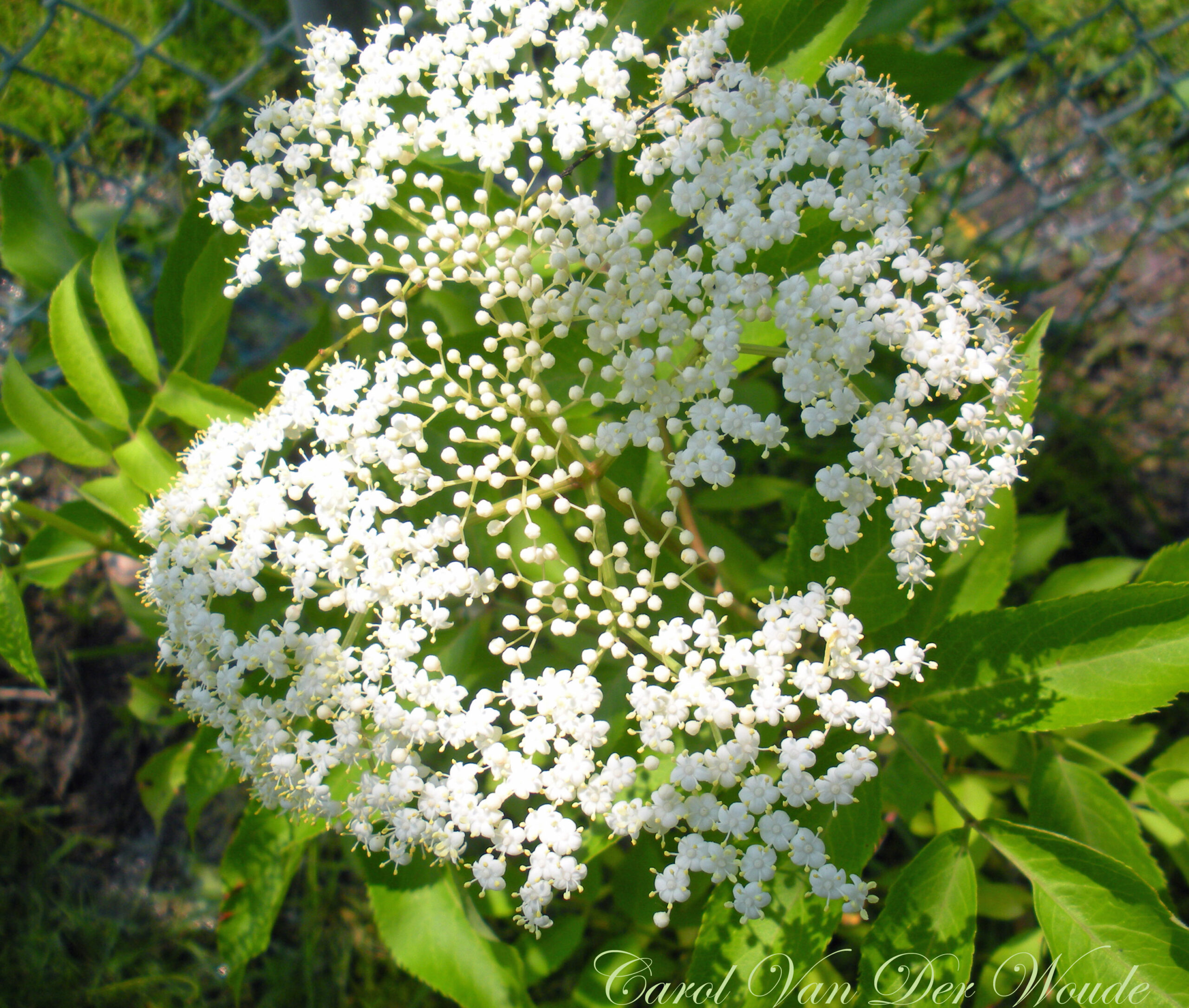
The flowers can be used to make a cordial that has nutritional value. Click here for instructions on making a cordial. I have made it once and plan to make it again next year.
The berries ripen in August and September and are a dark blue or black.
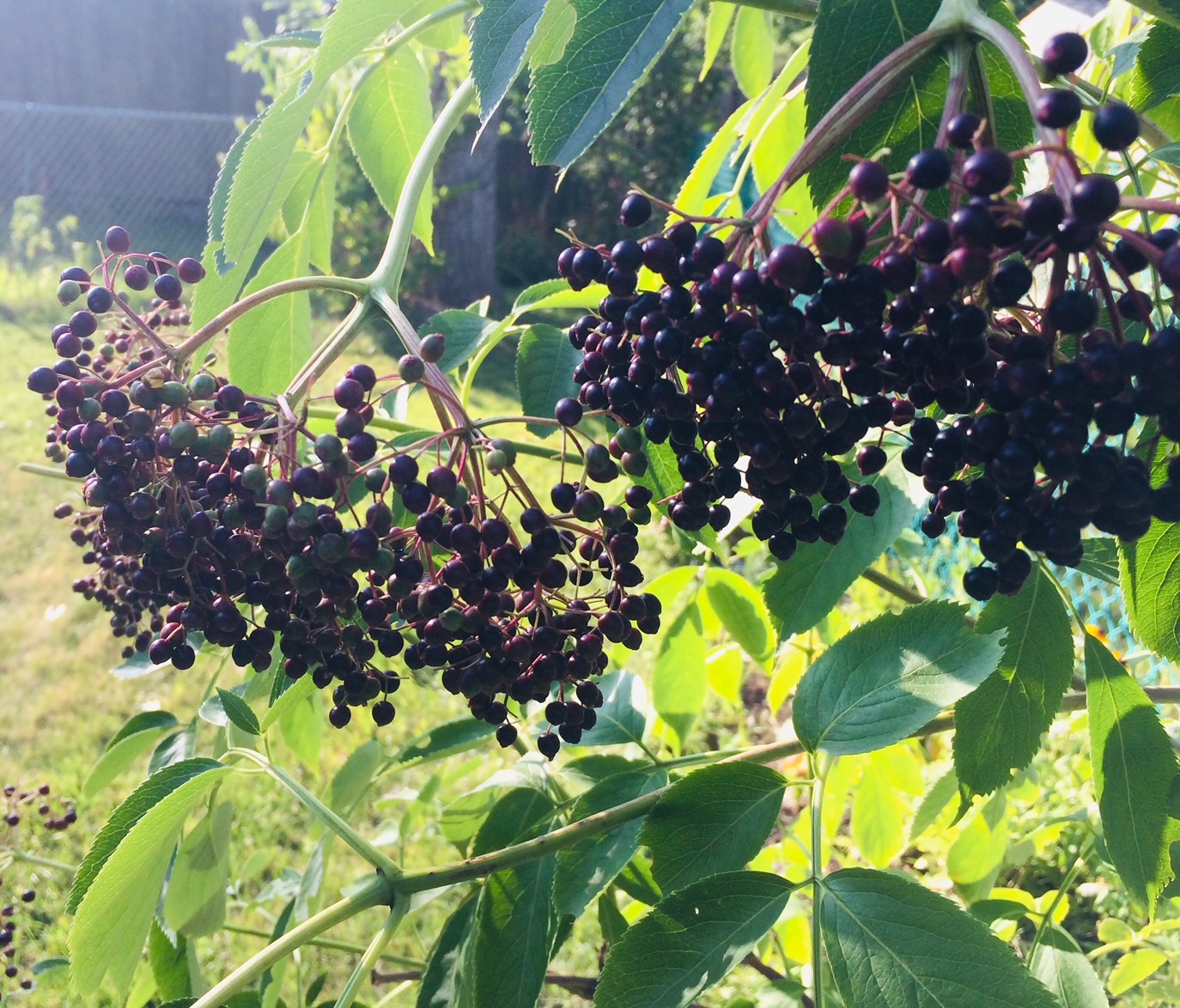
The tedious part of harvesting berries is removing each and every stem from the berries. The berries must be cooked prior to eating—the raw berries can cause stomach upset. I make a juice that I preserve. One or two tablespoons of the juice in a cup of tea plus a teaspoon of raw honey is nice!
Does elderberry treat colds and flu? Some studies indicate that it shortens duration of the flu, and other studies show no effect.
The Cleveland clinic has an interesting article about elderberries. In the article they reference the nutritional value of elderberries. According to the U.S. Department of Agriculture, elderberries contain calcium, iron, magnesium, potassium, vitamin C and vitamin A.
I enjoy the health benefit that elderberries give and find the juice beneficial. I also take vitamin supplements and eat a healthy diet. I am grateful for natural ways to support health in fall and winter.
There is reason to use caution in consuming elderberries, trying just a teaspoon of juice in tea, gradually more. Some people with auto-immune issues have noticed a flare up of symptoms after having elderberry syrup or juice. Elderberry stimulates the immune system.
Here is the recipe for elderberry juice that I first published 8/18/2015. To make elderberry juice: place 1 cup of water for each cup of berries in a stainless-steel pot. (If you are using dried berries, you will need 2 cups of water for each cup of berries.) Bring to a boil and then simmer over low heat, covered, for about 30 minutes, stirring frequently.
Crush the berries with a potato masher and add ¼ teaspoon ceylon cinnamon for each cup of berries, a slice of organic ginger root and a couple slices of an organic lemon.Simmer for 20 minutes more without a cover.
Strain the berries in a strainer that has been lined with a double layer of cheesecloth. Allow it to drain, pressing on the berries periodically with a wooden spoon. Add ¼ cup honey to each cup of strained juice and mix thoroughly. Heat the juice to a simmer over medium heat before pouring into sterilized jars.
According to instructions for berry juice in Stocking Up* the juice can be canned in a hot water bath. Place the prepared lids on the jars. Tighten the lids and then give a quarter turn back. Place in the prepared boiling water–making sure that the jars are submerged. Instructions for pint or quart jars give a 30 minute processing time. I plan to use 8 ounce jars. For 8 oz. jars the time might be a little less, but to be safe I will process for 30 minutes.
If you make a small amount of juice there is no need to can it. Allow the juice to cool. Add 1/2 cup of raw honey to a cup of juice and refrigerate. It will keep for a couple months.
I frequently share my posts with these link-ups: Sweet Tea and Friends (month long): on Mondays Senior Salon Pit Stop and Anita’s Inspire Me Monday: and the next day Tuesdays with a Twist
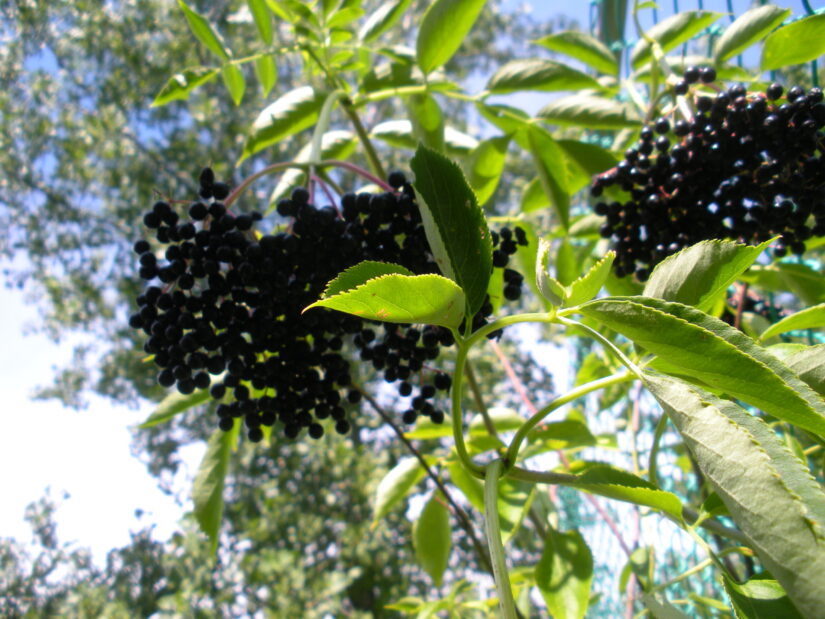

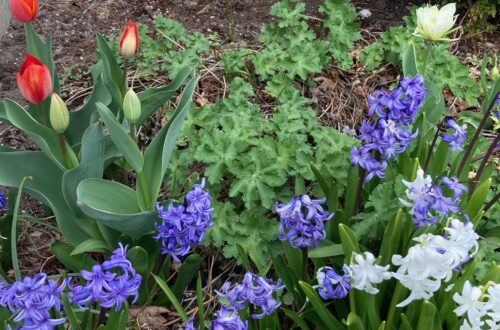
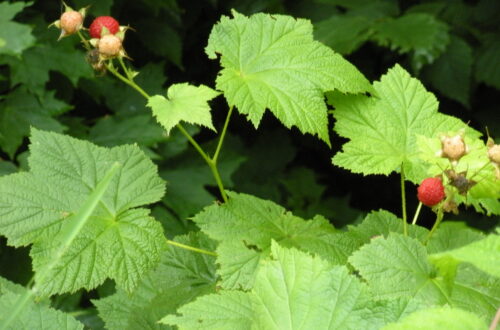
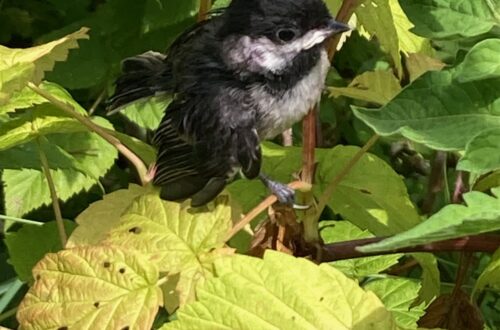
Carol, I love elderberries. We had a bush in the yard when I was growing up and my parents made elderberry jelly for years. Thanks so much for sharing these benefits with Sweet Tea & Friends this month dear friend.
I would like to try making my own elderberry syrup or cordial sometime. I have found elderberry to be helpful for me. Thanks for a very informative post! Visiting from Sweet Tea & Friends today
If you don’t have access to fresh elderberries, you can purchase dried elderberries. Mountain Rose Herbs carries dried elderberries.
https://mountainroseherbs.com/elder-berries